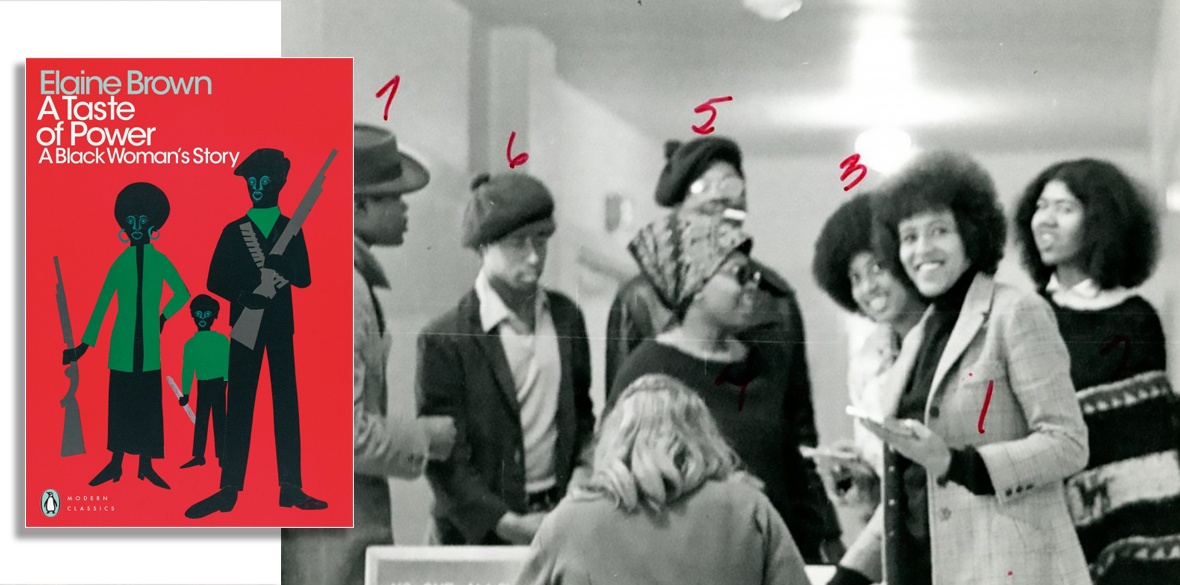This is the last article you can read this month
You can read more article this month
You can read more articles this month
Sorry your limit is up for this month
Reset on:
Please help support the Morning Star by subscribing here
A Taste of Power
by Elaine Brown
Penguin Modern Classics £10.99
WHEN the revolutionary leader Thomas Sankara launched the Black Institute in 1986 in Burkina Faso, he did so with the words: “Black people must take responsibility for their own history and contribute to universal civilisation.”
Elaine Brown’s memoir A Taste of Power, newly reissued as a Penguin Modern Classic, takes the lead from a black woman’s perspective within the US.
Brown joined the Black Panther Party in 1968, after the assassination of Martin Luther King. In 1974, when founder, chairman and “minister of defence” Huey Newton went into exile in Cuba he made her the leader, a position she maintained for three years, from 1974 to 1977.
The immense achievement of her memoir is that she tells you what it felt like. It gives you the chance to step into the shoes of a black woman, whether on the gang-patrolled streets of North Philadelphia, in an FBI-sponsored shoot-out on the campus of UCLA or asserting her leadership over “the most militant organisation in America.”
You follow the thought process, the political theory and the dialogue, the doubts, the grief and the achievements.
It is a work of high literary merit written in concise, finely crafted and fast-moving prose. The narrative is so compelling that it reads like the script for a movie. It reconstructs events as both dialogue and as an emotional journey, a woman’s rite of passage.
To the objective task of the Panthers, of organisation and alliance to combat systemic racism and oppression, is added the dimension of a woman’s psychology, which she lays bare with thrilling confessional candour.
The result is revealing, educational and unsettling all at the same time, and her great skill, both as a protagonist in this unique revolutionary movement and also as a writer, is to maintain the tension between contradictions and opposites, and somehow to hold it together.
From the beginning she confronts us with the paradox of a black girl born into poverty who has the luck to receive a privileged education. As a child she experiences a kind of social schizophrenia: at school, among her Jewish friends, she is “white;” back home in North Philadelphia she is “black.”
This battle of opposites, between blackness and whiteness, poverty and privilege, social programmes and gang violence, persuasion and violence, sexism and equality, imprisonment and freedom, reason and faith, man and woman... these are revealed as permanent and co-existent aspects of the experience, the psychology and the political theory of the black American militant.
She lays out the central paradox in an article about Huey Newton that states his view that “the black lumpenproletariat are the guiding force of the vanguard party.” This is Newton’s theoretical innovation: he asserts that a class that was disregarded by Marx and Lenin could, in the conditions of mid-20th century America, create the conditions for revolution against capitalism and racism.
But can the lumpenproletariat alone achieve lasting revolutionary change?
The temporary achievements of the party — that are its legacy — are not in doubt.
It was able to address itself directly to the needs of the mass of the black community through a range of creative and popular social programmes addressing hunger, poverty, the prison population, pest control, medical health, housing and education.
It financed, published and distributed its own newspaper for 13 unbroken years.
It forged progressive alliances with similar groups in the US encompassing other ethnic minorities including poor white populations, as well as women’s liberation and gay liberation movements.
It developed alliances and exchange with revolutionary movements abroad including the IRA, the Mozambique Liberation Front and the PLO, and developed close ties with the Republic of Cuba and the People’s Republic of China.
With every chapter of Brown’s memoir you step into another world and another larger dimension of global revolutionary struggle.
Inevitably, alongside this expansion comes an increasingly violent response by the US government and the book justifies itself quite rightly, and very movingly, as a eulogy for the many remarkable comrades killed or imprisoned by the state.
It drives towards the tactical development under Brown’s leadership when the party sought to nurture the ballot alongside the bullet, and to win office in their home base of Oakland with burgeoning success.
But at this point Newton returns from Cuba, and with his reappearance a culture of violent sexism and drug addiction reasserts itself in the party and Brown quits. It’s a painful moment when the contradictions finally overwhelm her commitment and the power, genuinely tasted, is renounced.
Although she doesn’t address it directly, the very shape of Brown’s narrative raises the question whether a revolutionary movement based in the lumpenproletariat is able to succeed without strategic alliance with other parts of society, with the proletariat itself and the organised labour movement.
In this way the book is dialectical. You pick it up to experience “the headiness of defying the odds and seizing history by the throat, to throw off our accursed lot.” You put it down bruised, saddened and questioning.
But also deeply moved, grateful and wiser.












